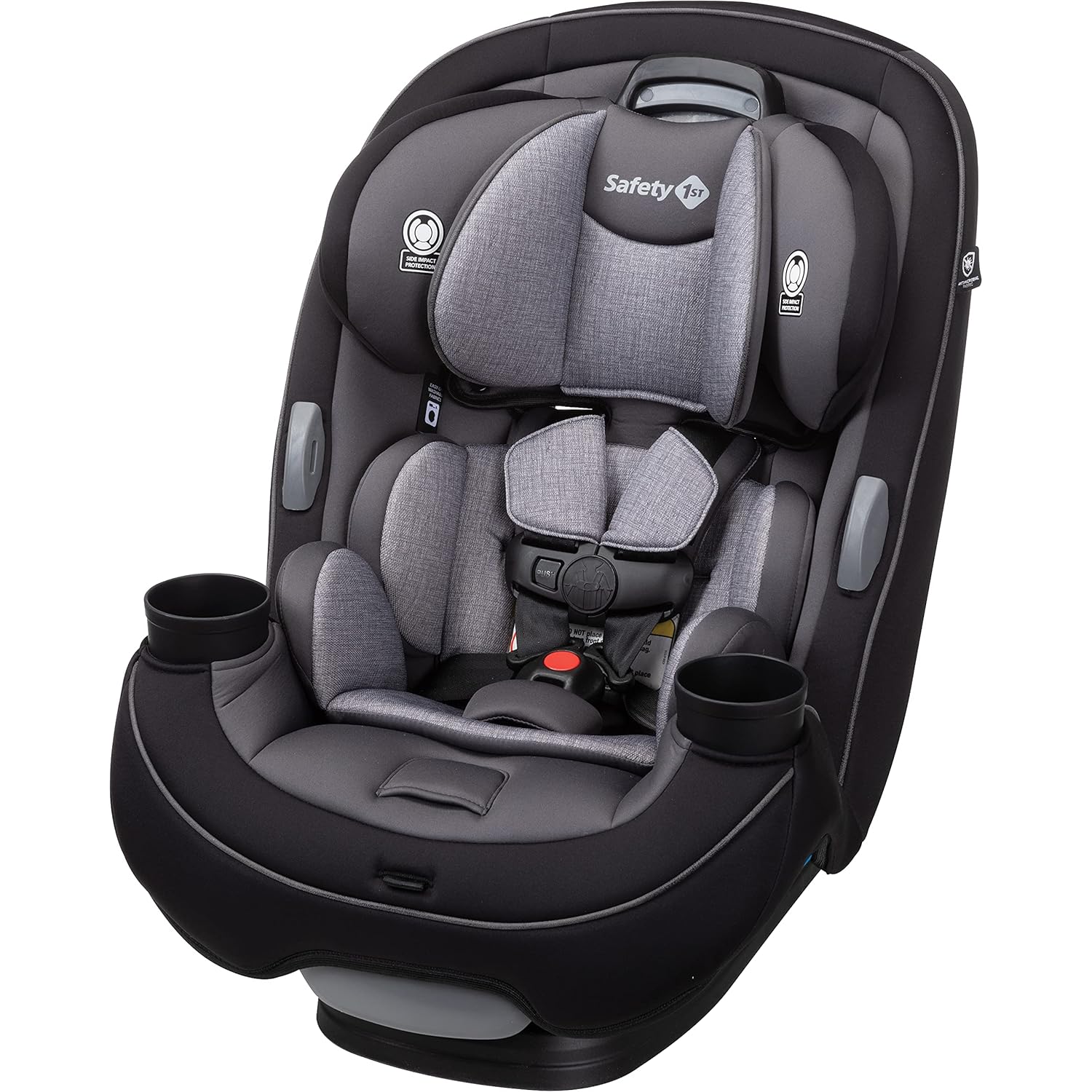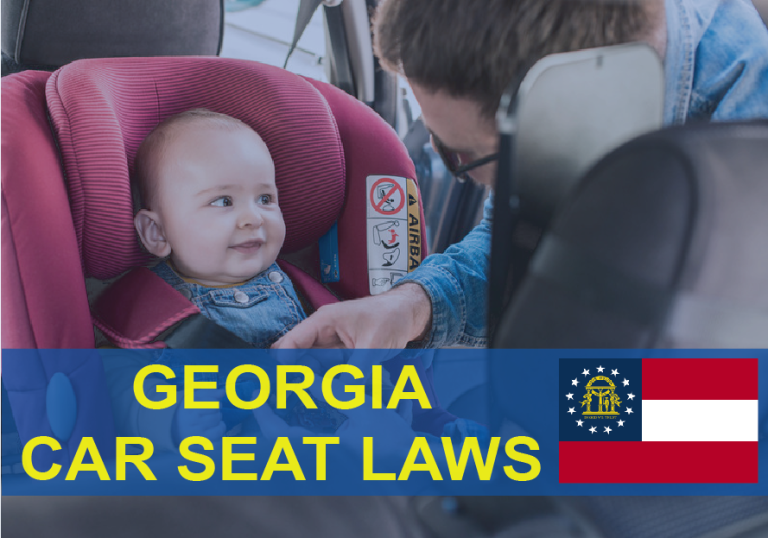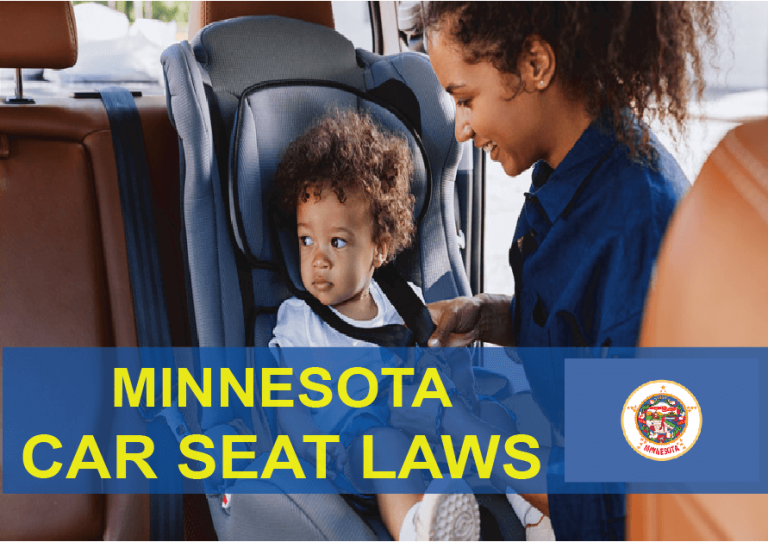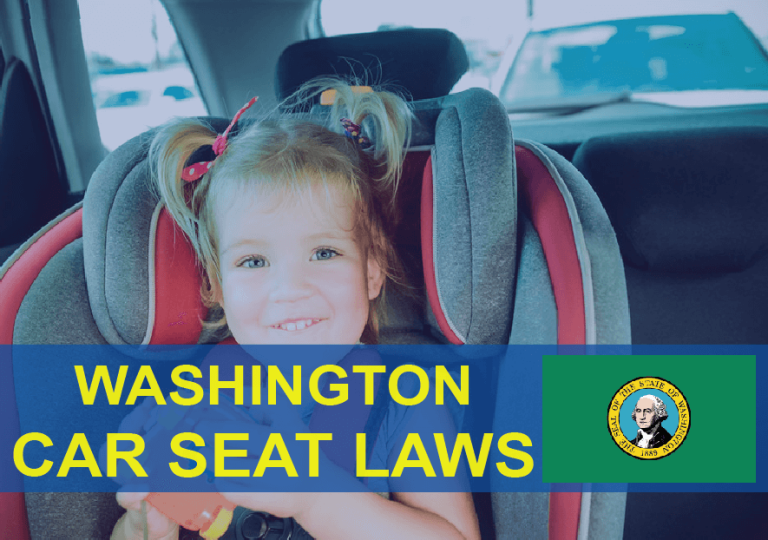The lack of use of a child seat system may not only result in bodily harm, but it also has a financial cost. Every year in Florida, $3.16 billion is lost as a result of vehicle accidents.
Many states have laws that require parents to properly restrain their children in the backseat of a vehicle when riding with an adult driver. These laws are designed to protect both drivers and passengers alike by ensuring everyone is adequately restrained.
Florida, like many other states, has recently enacted a law regarding child car seats. This article will guide you through the Florida car seat laws.

- Florida Car Seat Laws
- Florida Rear-facing Car Seat Law
- Florida Forward-facing Car Seat Law
- Florida booster seat law for young kids
- Requirements for children to use the front seat in Florida
- Taxi Car Seat Law in Florida
- Florida car seat replacement law after Accident
- Law on leaving a child in a car in Florida
- Penalties for Violating Florida Car Seat Laws
- Car Seat Law Exemptions in Florida
- Is it Illegal to Smoke in a Car with a Child in Florida?
- Car Seat Inspections Help in Florida
- Child passenger safety related videos Florida
- More information and resources on car seat safety Florida
- USA Child Passenger Safety Laws by State
- Best Car Seats of 2022: Ranked by Our Experts
- Find trusted locals for your every need
Florida Car Seat Laws
According to the child restraint law of Florida,
“Every operator of a motor vehicle as defined in this section, while transporting a child in a motor vehicle operated on the roadways, streets, or highways of this state, shall, if the child is 5 years of age or younger, provide for the protection of the child by properly using a crash-tested, federally approved child restraint device.”
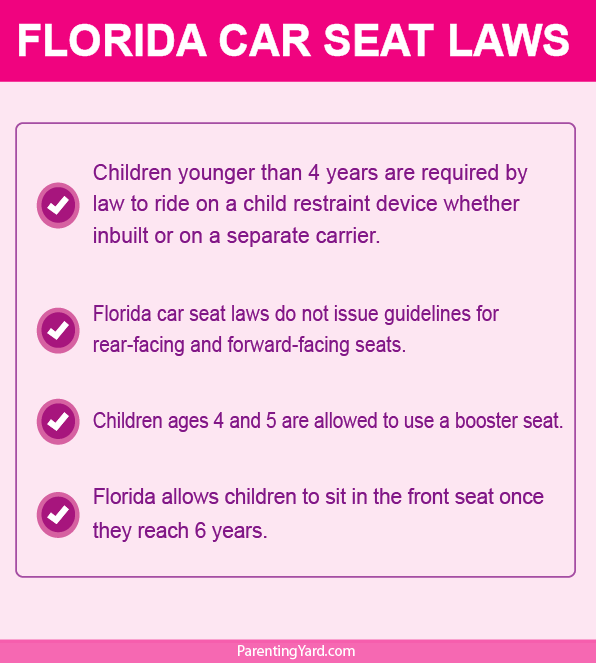
Florida Rear-facing Car Seat Law
There is no age mention in the Florida law for rear-facing car seats. According to the Florida Department of Highway Safety and Motor Vehicles, the best car seat fits your child perfectly. Keeping that in mind, we can refer to the American Academy of Pediatrics who says “Fortunately, car seat manufacturers have created seats that allow children to remain rear-facing until they weigh 40 pounds or more, which means most children can remain rear-facing past their second birthday,”
Florida Forward-facing Car Seat Law
The car seat law of Florida does not address forward-facing seats’ requirements. This means that parents may be confused when trying to comply with forward-facing car seat laws.
However, the AAP and the car seat manufacturer’s instructions provide specifics that can assist you in keeping your kid protected while still following the law. When your child weighs at least 20 pounds and is at least 2 years old, AAP recommends they switch to a forward-facing seat.
Florida booster seat law for young kids
According to the law, children aged 4 and 5 are permitted to use a booster seat. However, most experts believe that this is too young and that children in this age range should be kept in a forward-facing or rear-facing seat. The safest option is to follow the manufacturer’s recommendations. Because you will still be in line with the state’s car seat laws, utilizing the maker’s handbook to decide when to change your kid may be the wisest course of action.
Children are usually ready for booster seats when they weigh at least 40 pounds and are over 5 years old. The shoulder strap should cross over the center of your child’s chest (not neck) and the lap belt should rest low across the hips.
There are 2 types of booster seats:
• High-back booster seats – If your car’s seat back is lower than your child’s ears, you have to use a high-back booster seat to protect your child’s head and neck.
• Backless booster seats – If your car’s seat back is higher than your child’s ears, you can use a backless booster seat.
Requirements for children to use the front seat in Florida
According to Florida law, children must ride in the back seat until they are 12 years old, however many car seat manufacturers recommend that children do not ride in the front seat after age 13.
Because children wearing car seats were designed to fit people up to 4’9′, they may be damaged severely in the event of a collision because their seat belts are too large. If the shoulder and lap belts are incorrectly positioned across the child’s body, she may suffer extensive damage to her spleen, intestines, and back as a result of the forces acting on her during a vehicle accident. According to most experts, youngsters should begin using seat belts at age 8 as long as they are 4’9″ tall.
If you are confused about which restraint system does your child need, this simple test will make it clear to you whether your child needs to use a booster seat or just a seat belt.
The Five-Step Seat Belt Fit Test:
- Is the child able to sit all of the way back against the auto seat?
- Are the child’s knees able to bend comfortably at the edge of the vehicle seat?
- Is the belt crossing over the shoulder between the neck and arm?
- Is the lap belt as low as possible, with the thighs?
- Is it possible for the child to remain in this position the whole journey?
If you answered “no” to any of these questions, your kid requires a booster seat to travel safely in the car. Boosters are popular with kids since they are more comfortable!
Taxi Car Seat Law in Florida
Taxis are exempt from child restraint laws in Florida. According to the law,
“(6) The child restraint requirements imposed by this section do not apply to a chauffeur-driven taxi, limousine, sedan, van, bus, motor coach, or other passenger vehicles if the operator and the motor vehicle are hired and used for the transportation of persons for compensation.”
Florida car seat replacement law after Accident
There are no laws in place in Florida regarding automobile seats that have been involved in an accident.
however, “NHTSA recommends that car seats be replaced following a moderate or severe crash in order to ensure a continued high level of crash protection for child passengers. Car seats do not automatically need to be replaced following a minor crash.”
Law on leaving a child in a car in Florida
When the engine is not running, it is prohibited for parents to leave their children in a car for more than 15 minutes. It is against the law to leave a child unsupervised for any length of time if the vehicle is switched on. We do not suggest leaving your child alone in his or her car for any amount of time.
Penalties for Violating Florida Car Seat Laws
A violation of the kid restraint device law is a moving infraction that carries a fine of $30.00 and three demerit points on your driver’s license. However, you may enter an authorized child restraint safety program developed by the Department of Highway Safety and Motor Vehicles and the circuit’s chief judge if you obtain court approval.
The court may, depending on the circumstances of the case, waive both the fine and the point assessment. The cost of taking the course must be proportionate to any additional expenses incurred by staff as a result of offering it.
Car Seat Law Exemptions in Florida
The “motor vehicle” referred to in the child restraint device law does not include school buses, other passenger buses used for monetary gain, farm tractors or other agricultural equipment, trucks with a gross vehicle weight rating of more than 26,000 pounds, motorcycles, mopeds, or bicycles.
Is it Illegal to Smoke in a Car with a Child in Florida?
It is not illegal to smoke in a vehicle with a child passenger in Florida. but smoking in a car with a child passenger is not recommended.
There are many risks associated with smoking, especially when it is done around children. Secondhand smoke can cause respiratory problems, asthma, and other health issues in kids.
Car Seat Inspections Help in Florida
- Florida Car Seat Fitting Stations by County (PDF by Florida Occupant Protection Resource Center)
- Alachua County Car Seat Safety Program
- Apopka Fire Department Car Seat Installation & Safety Checks
- Boca Raton Car Seat Safety Program
- Boynton Beach Car Seat Installation
- City of Margate Car Seat Installation
- City of Palm Coast Car Seat Installation
- City of Winter Garden Car Seat Inspection
- Clermont Child Passenger Safety
- Coral Springs Fire Department Car Seat Check
- CPS Technician Search: Find a CPS Technician
- Johns Hopkins All Children’s Hospital Car Seat Program
- NHTSA car seat inspection Center
- North Miami Beach Child Restraint Requirements/ Installation
- Palm Beach County Car Seat Installation
- Safe Kids Florida Directory
- Seminole County Car Seat Inspection Stations
- Tamarac Child Safety Seats
- The Lake Mary Police Department Car Seat Program/Installations
- Winter Park Police Department Child Car Seat Inspections
Child passenger safety related videos Florida
The History of Child Passenger Safety in Florida
Rear-facing Car Seats for Babies: Safety Tips
Q&A: Child Passenger Safety Tips and Tricks
Booster Seat Safety
More information and resources on car seat safety Florida
- Florida State Law
- Center for Disease Control and Prevention Child Passenger Safety
- City of Deltona Child Car Seat Safety Program
- Florida Highway Safety and Motor Vehicle Safety Belts and Child Restraints
- Miami-Dade County Safety Tips
- Occupant Protection Frequently Asked Questions
- Safe Kids Worldwide Car Seat Guide
- The 2019 Florida Statutes
- The Importance of Car Seats
- University of Florida Health Child safety seats
- Why do we use rear-facing Car Seats?
USA Child Passenger Safety Laws by State
FIND YOUR STATE’S CAR SEAT LAWS
Click on your state on the map below to see your state’s car seat law
Best Car Seats of 2022: Ranked by Our Experts
Read More:



